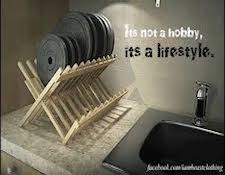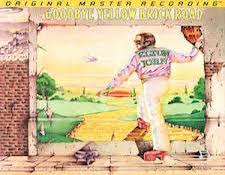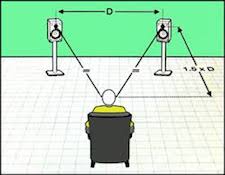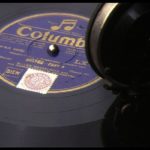It’s the time of year for saving money!
What anyone does in their free time can easily be quite diversified and varied. One only has to watch TV shows like American Pickers and Antiques Roadshow to understand that people have some interesting things they enjoy collecting. A high performance audio system, at its core, is simply a collection of electronic components with one unified goal -playing a song. And almost regardless of the specific quality level of an audiophile system, those who are mostly uninformed with what our particular hobby conveys often views us with surprise, confusion, and even at times, condescension. I’ve always wondered why.
 Perhaps the primary source of bewilderment of non-audiophiles is how much might be spent on an audio system. I was once at a local Best Buy listening, admittedly with bemusement, to a couple trying in vain to decide between two “stereo systems” – one costing about $600.00 and the other about $900.00. I wanted so badly to tell them it wouldn’t really matter, both would sound terrible. I chose instead to mind my own business and keep my big yap shut. To those outside our hobby, the justification of a system whose cost is even $2500.00 is difficult for most contemplating an audio system to understand. Imagine what those who have $50,000.00, or with greater difficulty, a six figure (and up) system, must go through trying to believably explain their system’s total value to the person at Best Buy pining over a $699.00 surround sound receiver.
Perhaps the primary source of bewilderment of non-audiophiles is how much might be spent on an audio system. I was once at a local Best Buy listening, admittedly with bemusement, to a couple trying in vain to decide between two “stereo systems” – one costing about $600.00 and the other about $900.00. I wanted so badly to tell them it wouldn’t really matter, both would sound terrible. I chose instead to mind my own business and keep my big yap shut. To those outside our hobby, the justification of a system whose cost is even $2500.00 is difficult for most contemplating an audio system to understand. Imagine what those who have $50,000.00, or with greater difficulty, a six figure (and up) system, must go through trying to believably explain their system’s total value to the person at Best Buy pining over a $699.00 surround sound receiver.
Another source of confusion to non-audiophiles is the concept of seriously and critically listening to a song. I’ve had a surprising number of people, whereupon first seeing my audio room, ask me “don’t you have a TV in here?” Well, no, I don’t, and with good reason. I’m here to sometimes analytically evaluate the sonic presentation of the song to which I’m listening and sometimes, just to simply enjoy a song. For the overwhelming majority of people, listening to music is part of the background or practiced while doing something more important – like maybe entertaining friends or jogging. That anyone would do nothing more than listen to a song is antithetical to conventional wisdom.
 All audiophiles have unique methodologies for system setup, for speaker placement, for positioning of the listening chair and room treatments. Those things are part and parcel of the audiophile hobby. How many of us have had to try and patiently explain to their spouse, better half or anyone else for that matter, why speaker placement takes an entire afternoon or even longer. Additionally, there is the seemingly ridiculous difference to the otherwise uninformed, that moving one speaker an inch or two in any direction will make a noticeable difference. So it seems obvious that the dedicated care and attention audiophiles take in ensuring that the system, speakers and room are all operating in ideal harmony with one another must seem a little obsessive. I once spent an afternoon helping a friend set up a nice little system utilizing some small bookshelf speakers. When his wife came home, my friend had her sit down and listen to a couple of songs. “What do you think?” he asked her. She replied that it sounded nice but there was no way he was leaving those speakers where they were. And they wound up, not surprisingly, where bookshelf speakers are seldom placed, on the bookshelf.
All audiophiles have unique methodologies for system setup, for speaker placement, for positioning of the listening chair and room treatments. Those things are part and parcel of the audiophile hobby. How many of us have had to try and patiently explain to their spouse, better half or anyone else for that matter, why speaker placement takes an entire afternoon or even longer. Additionally, there is the seemingly ridiculous difference to the otherwise uninformed, that moving one speaker an inch or two in any direction will make a noticeable difference. So it seems obvious that the dedicated care and attention audiophiles take in ensuring that the system, speakers and room are all operating in ideal harmony with one another must seem a little obsessive. I once spent an afternoon helping a friend set up a nice little system utilizing some small bookshelf speakers. When his wife came home, my friend had her sit down and listen to a couple of songs. “What do you think?” he asked her. She replied that it sounded nice but there was no way he was leaving those speakers where they were. And they wound up, not surprisingly, where bookshelf speakers are seldom placed, on the bookshelf.
 It is not difficult to understand or even explain why music is the overwhelming component of the audiophile hobby. It is so obvious it bears no explanation. Something, on the other hand, non audiophiles have a difficult time in understanding is why we collect so much music – or the related condition of collecting multiple copies of the same artist’s work also seem hard for some to understand. Despite the fact that streaming has enabled a world of music without having a physical collection, it does not discount the fact that some music libraries are enormous and may possibly contain multiple copies of the same artist’s work. I once proudly told a friend I had four different versions of Elton John’s Goodbye Yellow Brick Road. She looked at me as if I had two heads and simply said “why?” Why? Is it not obvious? I wanted to compare the original LP, the MoFi remaster of the original LP (which appears to be out of print), the standard CD and the High Rez download and see which is sonically superior and why. I even wrote about it back in 2014. Had I wanted, I could have, as a couple of readers in that article commented, also used the original UK pressing of the LP, the SACD version as well as the BluRay audio version. Care to explain to a non-audiophile the sanity in owning and listening to seven, even eight versions of the same work just to see what differences, if any at all, exist? Is having eight different versions of the Star Wars Chewbacca action figure any less ludicrous? Anyone who collects such memorabilia almost certainly and completely understands.
It is not difficult to understand or even explain why music is the overwhelming component of the audiophile hobby. It is so obvious it bears no explanation. Something, on the other hand, non audiophiles have a difficult time in understanding is why we collect so much music – or the related condition of collecting multiple copies of the same artist’s work also seem hard for some to understand. Despite the fact that streaming has enabled a world of music without having a physical collection, it does not discount the fact that some music libraries are enormous and may possibly contain multiple copies of the same artist’s work. I once proudly told a friend I had four different versions of Elton John’s Goodbye Yellow Brick Road. She looked at me as if I had two heads and simply said “why?” Why? Is it not obvious? I wanted to compare the original LP, the MoFi remaster of the original LP (which appears to be out of print), the standard CD and the High Rez download and see which is sonically superior and why. I even wrote about it back in 2014. Had I wanted, I could have, as a couple of readers in that article commented, also used the original UK pressing of the LP, the SACD version as well as the BluRay audio version. Care to explain to a non-audiophile the sanity in owning and listening to seven, even eight versions of the same work just to see what differences, if any at all, exist? Is having eight different versions of the Star Wars Chewbacca action figure any less ludicrous? Anyone who collects such memorabilia almost certainly and completely understands.
 Yes, hobbies are quite varied. Filling what for some is precious little free time is universally devoted to an individual interest – something one does because they enjoy doing so. While the method of how any one individual hobby is practiced, and the resulting confusion and skepticism that may easily be attached by one’s contemporaries, hobbies are the music of our free time. While the notes of the music of anyone’s hobby may vary in structure and application, such pastimes are practiced for personal satisfaction. Audiophiles take great comfort in listening to a song, among the many available genres, and being secure that their participation is empowering. Because at the end of a listening session, when the lights are turned off and the room is empty, enjoyment of what we heard and anticipation of what might come next are the notes of the music for our hobby.
Yes, hobbies are quite varied. Filling what for some is precious little free time is universally devoted to an individual interest – something one does because they enjoy doing so. While the method of how any one individual hobby is practiced, and the resulting confusion and skepticism that may easily be attached by one’s contemporaries, hobbies are the music of our free time. While the notes of the music of anyone’s hobby may vary in structure and application, such pastimes are practiced for personal satisfaction. Audiophiles take great comfort in listening to a song, among the many available genres, and being secure that their participation is empowering. Because at the end of a listening session, when the lights are turned off and the room is empty, enjoyment of what we heard and anticipation of what might come next are the notes of the music for our hobby.








